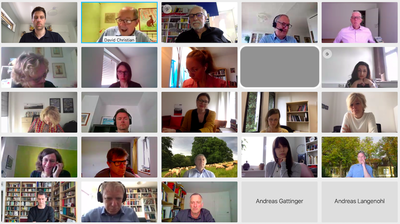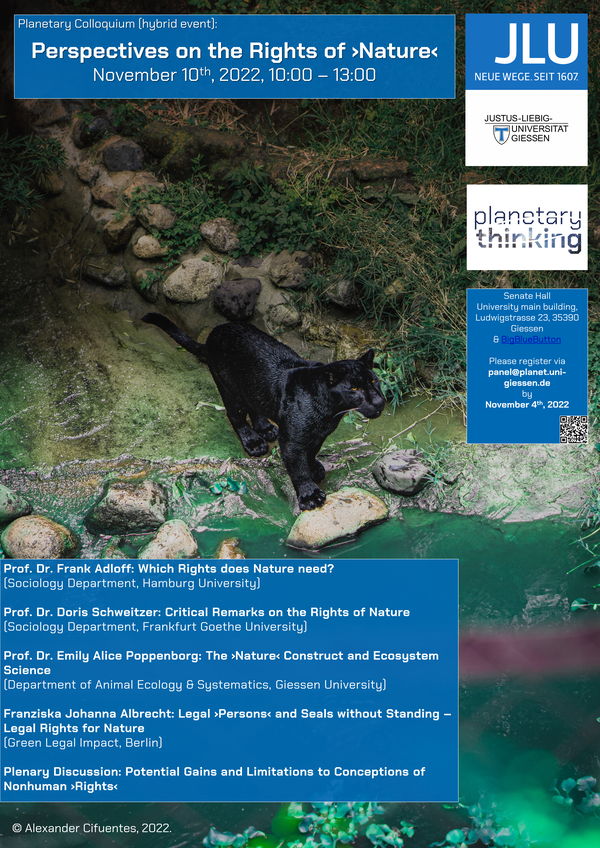Media
November 10, 2022 | Recognizing the 'Resource' as an Active Partner: Report on the Planetary Colloquium Perspectives on the Rights of ›Nature‹
|
In the face of the ongoing loss of biodiversity on the planet, more and more voices are calling for an entrenchment of solid rights of 'nature' within Western legal systems. In our planetary colloquium, questions about whether, how, and why the planet's myriad animal, plant, microbial, and other inhabitants can shape human politics were debated on. In his opening keynote "What rights does nature need?" sociologist Frank Adloff (University of Hamburg) traced the development of different conceptions of rights for animals, plants, and ecosystems. It quickly became clear that Western debates on sustainability, environmental protection, or animal welfare are still far from acknowledging the intrinsic value of non-human life forms. Adloff therefore proposes a "methodological animism": Based on the basic principle of many indigenous cultures, according to which all planetary components are understood as animate and animate, living beings such as worms, mushrooms, or rivers could be programmatically conceived as quasi-subjects. He thus combines indigenous cosmology with a Western understanding of law so that non-human life forms can be grouped together as collective legal subjects. In response to Adloff, sociologist Doris Schweizer (Goethe University Frankfurt) raised concerns about the transferability of human conceptions of law to non-human 'legal persons'. Although she acknowledges the political potential behind the idea, legal systems can only relativize their anthropocentric orientation, never overcome it. Ecosystem researcher Emily Alice Poppenborg (JLU Giessen) followed by raising further doubts: Nowadays, human societies are so closely entangled in the functioning of ecosystems that the term 'nature' is not used at all in Poppenborg's research; moreover, it underpins misguided notions of a nature-culture divide. Nevertheless, lawyer Franziska Johanna Albrecht (Green Legal Impact, Berlin) was able to show that rights of 'nature' - however imperfect they may be - can serve as effective tools in terms of representing non-human interests. As recently as October 3, 2022, the Spanish lagoon "Mar Menor" was declared the first natural legal entity in Europe. Whether this status will actually help the immensely threatened ecosystem out of its crisis remains to be seen and is already questioned by experts (cf. Soro Mateo and Álvarez 2022). In attempts to further refine the concept of nature as a legal entity so that it can be implemented effectively, indigenous models undoubtedly represent pioneers for orientation. Within these attempts, rights of 'nature' can and should by no means be understood as a cure-all against anthropocentrism, but must always be scrutinized as to their motivations. However, as instruments to be continuously further elaborated, they can contribute to the relativization of anthropocentric thinking - and thus perhaps counteract the extinction of species. |
A recording of the hybrid event will be available for streaming on our Youtube Channel shortly.
|
June 4, 2021 - Planetary Colloqium "Planetary Perspectives"


